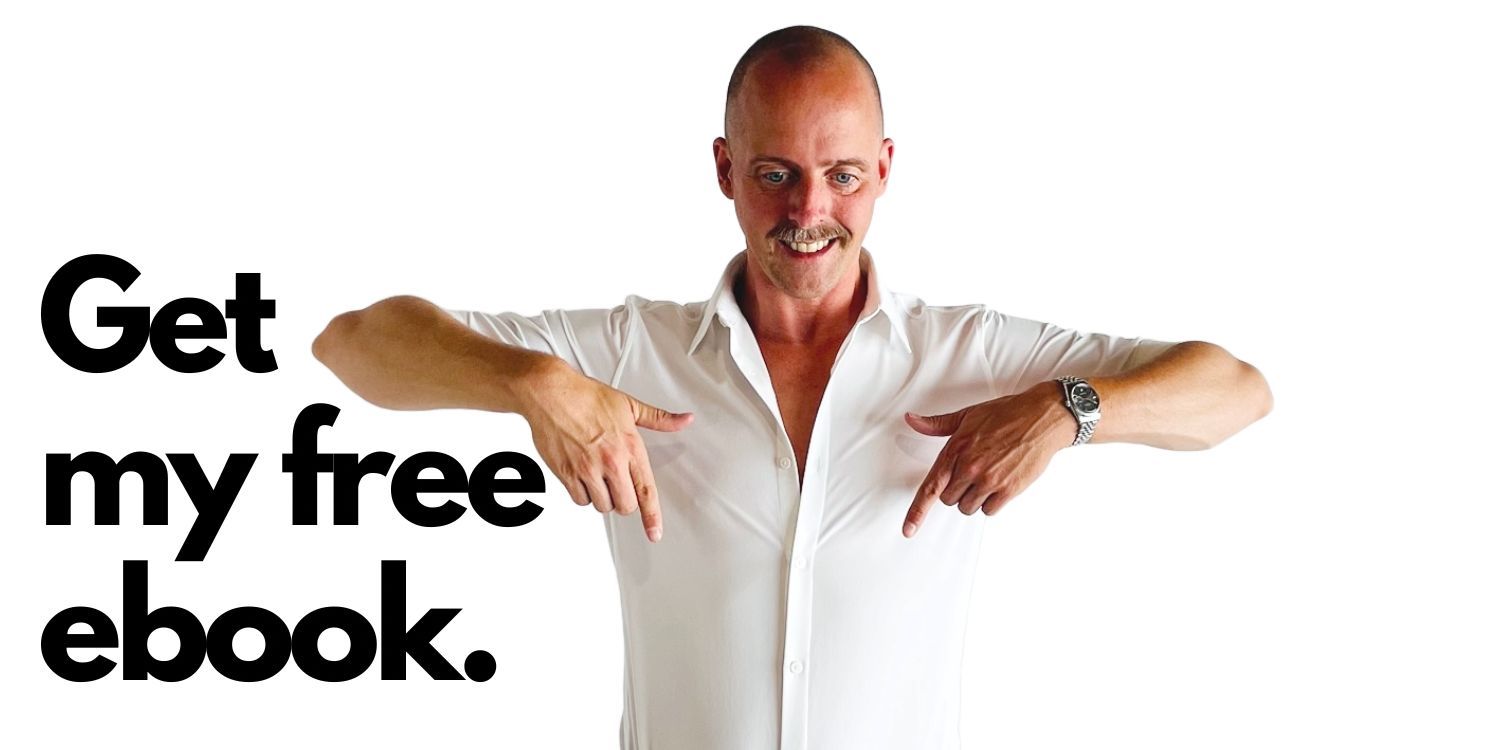How To Deal With Internalized Homophobia?
Aug 13
/
Rene Luisman
When we think of homophobia, we often think of people who have a strong dislike or hatred for anything related to homosexuality. But what if you feel this aversion to yourself?
Accepting your sexuality is a long and arduous process for some men. When you are ashamed of your own homosexuality, we call it internalized homophobia. The belief that being non-heterosexual is somehow wrong, bad, dirty, or not normal.
In this article I explain how internalized homophobia arises, how to recognize it and what to do about it.
How does internalized homophobia arise?
Most LGBTI youth realize around the age of twelve that they are not heterosexual. Yet the average age at which they share that information with others is only around their 20s. How people think about homosexuality in their environment plays an important role in this.
The views of the immediate environment have a major influence on the formation of a young person's self-image and self-esteem. Think for example of how parents, teachers, supervisors at the local sports club and peers talk about homosexuality. The term gay is still often used with a negative connotation, for example to indicate that someone has to pull themselves together. When you're struggling with coming out, hearing this doesn't make it any easier.
Internalized homophobia occurs when someone consciously or unconsciously accepts homophobic prejudices and applies these prejudices to themselves. As a result of seeing yourself as a socially stigmatized person, you experience aversion or hatred towards yourself or other LGBTI people.
There are also three factors that increase the risk of internalized homophobia:
growing up in a conservative or religious environment;
experience little or no support from their own environment; or
the lack of role models with which the young person can identify.

What is the effect of internalized homophobia?
Internalized homophobia can have a huge impact on your mental health, functioning and social interaction with others.
It may result in:
You can't or won't accept your sexual orientation;
You are ashamed of your sexual identity or orientation;
You are hyper-aware of how you come across to others (behaviour and mannerisms);
You believe that you are never good enough;
You have low self-esteem or negative body image;
You withdrawing or withholding yourself in front of friends, relatives or colleagues;
You are not open that you have a same-sex partner;
You react condescendingly to LGBTI people who do express themselves openly; or
You fear that others will label you as gay.
As a result, some gay men experience chronic stress (also called minority stress) or sometimes psychological problems themselves.
So, what can you do about it?
You may also recognize this in yourself. That you have a greater or lesser degree of difficulty accepting your own sexual orientation. You suppress your feelings for fear that others will reject you. Or you have trouble with the attitude or behavior of other gay men. Internalized homophobia is nothing to be ashamed of, because nobody is immune to homophobia. Below we describe four ways to deal with internalized homophobia.
Four ways to deal with internalized homophobia:
Negative beliefs about homosexuality are unfortunately entrenched in our society. As subtle as they are at times, chances are you've come to believe them at some point in your life. Erasing these negative beliefs is therefore impossible. What you can do is put positive beliefs next to it.
Keeping a white paper helps you to strengthen your self-image. By writing down on a daily basis what is going well, what you are satisfied with or what you appreciate in yourself, a more nuanced picture of yourself is created. And by giving yourself permission to be who you are, feel what you feel, and think what you think. No matter what other people say.
Unfortunately, homosexuality is usually seen as something negative. But there are also other stories. Stories in which homosexuality is something to be proud of, for example because someone has done something very brave or vulnerable. Collect new stories to counter any negative beliefs. Maybe in your own life, in the lives of other gay men or in history. And believe me, these stories really exist. There is plenty of reason to be proud of who you are.
Unlike other minority groups, as a gay man you usually do not learn from your parents how to survive in a heteronormative world. The role models that you can mirror yourself to are missing.
It is never too late to actively look for people who do accept and support your sexual orientation. Someone in your environment who you trust and with whom you dare to show yourself. Joining a men's group is a way to meet other gay man. A safe environment in which you can explore topics that concern you together with other men. Understanding how other men deal with this helps you to walk your own path.
Sometimes it is still difficult to accept your homosexuality, even though it disrupts your daily functioning. Then you can seek professional help from a psychologist, therapist or coach. Choose someone with whom you feel safe and with whom you feel that they can help you further.
Schedule
a free appointment to find out what I can do for you.



